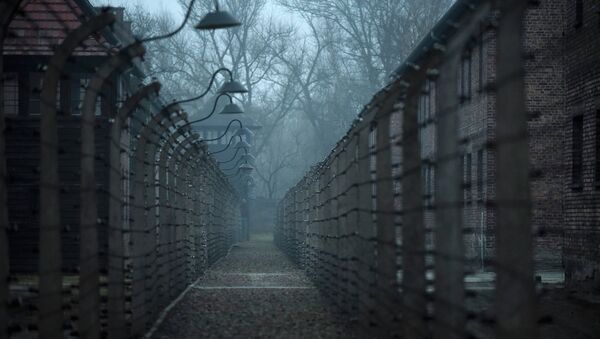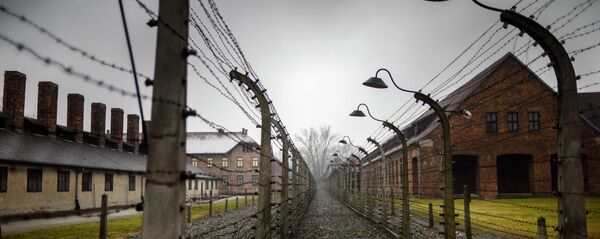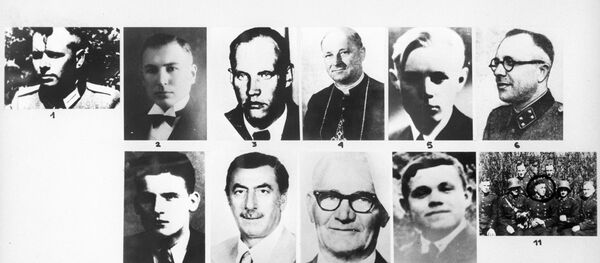His trial, which will begin on Thursday, is not the first of its kind; it follows a precedent set five years ago when retired US autoworker John Demjanjuk was convicted in Germany for serving as a Nazi death camp guard. There was no evidence of Demjanjuk's involvement in any specific killing.
Hanning's defense attorney Johannes Salmen says his client admits serving at the Auschwitz I part of the infamous camp complex in Nazi-occupied Poland, but denies serving at Auschwitz II, also known as Birkenau, where more than one million people were killed. Prosecutors believe that guards in the main camp also served as on-call guards at Birkenau when trainloads of Jews were brought in.
"We believe that these auxiliaries were used in particular during the so-called Hungarian action in support of Birkenau," prosecutor Andreas Brendel said.
Around 40 Auschwitz survivors or their relatives have agreed to speak at the trial as co-plaintiffs, though not all of them are expected to testify.
The trial will be limited to two hours per day in deference to Hanning's age, and Salmen says his client's health will be checked by an expert as the trial opens.
News Ex-Auschwitz guard on trial in late push to punish Nazi war crimes https://t.co/rCNIHrA1Yr
— news4trends.com (@news4trends) February 10, 2016
Leon Schwarzbaum, a 94-year-old Auschwitz survivor who is the first witness scheduled to testify, said he can't forget what he witnessed in the camp.
"The chimneys were spewing fire… and the smell of burning human flesh was so unbelievable that one could hardly bear it," he told reporters on Wednesday.
"It's perhaps the last time for [Hanning] to tell the truth. He has to speak the truth."
90 year-old Auschwitz survivor Justin Sonder, who is scheduled to testify Friday, said it's never too late to punish those responsible for running the camps.
"I'm often asked if there were SS men in Auschwitz who showed compassion," he said. "No, absolutely not!"
"He was a medic for Wehrmacht (army) soldiers and SS men — for uniformed men — and had no part of the Holocaust," Zafke's attorney, Peter-Michael Diestel said, "but the judicial argument of the Demjanjuk verdict says that if he didn't provide his service as a medic then Auschwitz wouldn't have functioned."
"What should a young man, even if he knew what was going on in Auschwitz, do to stop it?" Diestel asked, adding that it is Germany's "shame" that many higher-ranking Auschwitz workers and other Nazi war criminals were able to escape prosecution in the years after World War II.
There is no question there were "some serious failures by the German judicial system in the past," says Efraim Zuroff, the head Nazi-hunter at the Simon Wiesenthal Center. But "that doesn't in any way change the validity of what's happening now."
"In a certain sense, you could say these people had the bad luck to live a long life," he said. "If they had died five years ago they would never have been going to trial."




